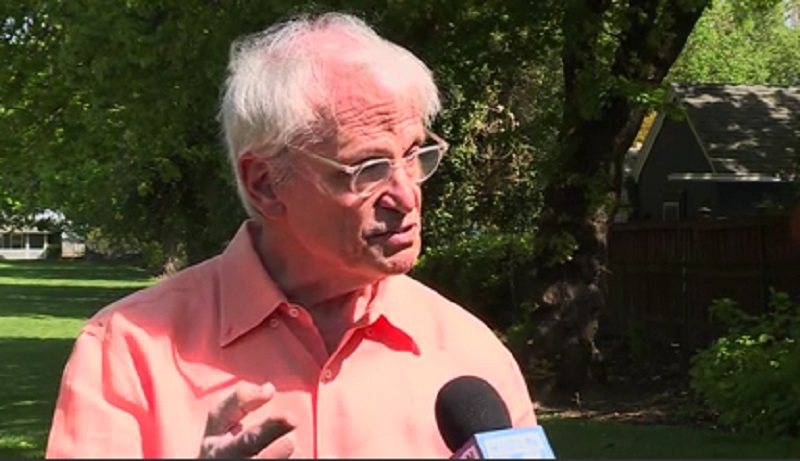PORTLAND, Ore. (KOIN) — The pandemic is over. The moratorium on rent increases has disappeared in Oregon. Rising rents are pushing more people into eviction court as they owe thousands in unpaid rent due now.
Most of those renters show up without a lawyer. But Measure 26-238 on the Multnomah County ballot — known as the Eviction Representation for All Measure — would help pay for a lawyer.
Its proponents, like Donovan Scribes with the Community Alliance of Tenants, said it’s a good plan to help people keep a roof over their heads. But its opponents, like US Rep. Earl Blumenauer, said it’s an unnecessary plan that taxes homeowners even though they would have a federal exemption.
What Measure 26-238 does
The measure is a tax on anyone in Multnomah County who has capital gains profits from selling an asset that went up in value while it was owned — and that includes a home. The millions raised by the tax would help provide attorneys and rent assistance for those tenants facing eviction.
The measure would place a 0.75% tax on capital gains — the profits you make from selling an investment — in Multnomah County.
Multnomah County ballot information for May 16, 2023
“Making sure that everybody who lands in eviction court has legal representation is a good stopgap measure to make sure more people are staying housed,” Scribes told KOIN 6 News.
The idea was to tax the wealthy. But it’s a much wider group who would pay this tax.


“Every senior citizen in this neighborhood who’s owned their house for more than 10 years would be faced with a huge capital gains tax when they sell,” Blumenauer told KOIN 6 News.
Blumenauer’s biggest concern is how the measure could affect Portland-area homeowners, especially seniors or low-income owners who decide to sell their home that’s gone up in value since they bought it.
Federal law allows an exemption from paying federal capital gainst tax when you sell your home. A seller doesn’t have to pay federal capital gains on the first $500,000 of profit made from selling a home as a couple, or $250,000 if the seller is single.
The federal tax also has limits based on income. But Measure 26-238 does not.
“There is no exemption for $500,000 for the individual homeowners in this neighborhood. You’re safe federally. But Multnomah County will get you if they pass this tax,” Blumenauer said.
Supporters of the measure acknowledge a home exemption was not written into the measure but said it could be changed by county commissioners if it passes.
“We can retroactively have the commissioners go in there and put in those same safeguards that the federal capital gains tax code has,” Donovan said.
Opponents point out there is already the Metro Supportive Housing Tax, an income tax on upper earners used to help low-income renters pay rent, late fees and prevent eviction. They believe more money to help tenants should come from existing city and county multi-billion dollar budgets rather than from a new tax.
But, supporters claim, there is no guarantee that would happen or when — and rent hikes and homelessness are growing now.
The county could raise or lower the percent of the tax depending on how much money does — or does not – come in. This measure is only on the Multnomah County ballot.
Election Day is Tuesday, May 16. Ballots must be postmarked no later than that date.